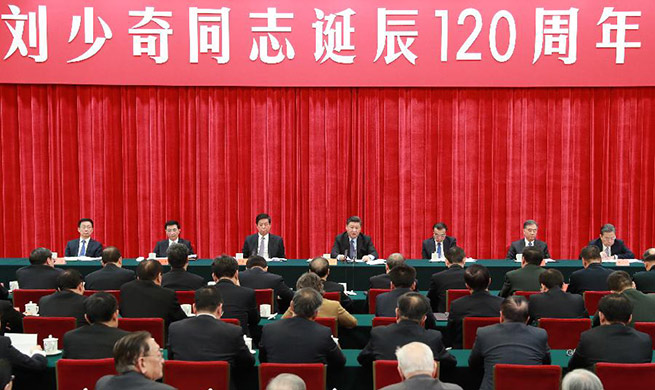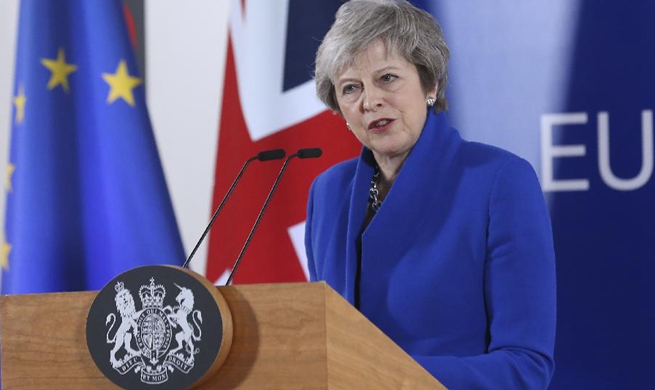BEIJING, Nov. 25 -- The following are the chronicled major events related to Brexit -- withdrawal of the United Kingdom of Great Britain and Northern Ireland (UK) from the European Union (EU):
Nov. 25, 2018 -- The EU's 27 member states endorsed the withdrawal agreement and Political Declaration on the UK's exit from the EU and the European Atomic Energy Community, as well as on a framework of the future relationship between the EU and the UK.
The UK's 39-billion-pound "divorce bill" has yet to be passed by the UK parliament, which is to vote on it in December.
Nov. 22, 2018 -- UK and EU negotiators reached a draft agreement on post-Brexit economic and security ties.
Nov. 14, 2018 -- The British Cabinet agreed to Prime Minister Theresa May's Chequers plan on Brexit.
Nov. 13, 2018 -- The UK and the EU agreed to the draft deal on Brexit. According to the draft, there will be a 21-month transition period after the Brexit, during which the UK will remain in the single European market and the EU Customs Union, and continue to enjoy zero tariffs with EU members. In addition, the two sides are expected to seek to establish a free trade area.
Earlier in the day, the EU published contingency plans for a "no-deal" Brexit.
July 2018 -- May put forward the controversial Chequers plan, or proposals for negotiations with the EU for a "soft" Brexit.
June 26, 2018 -- Queen Elizabeth II signed the EU withdrawal bill, according to which the UK will quit the EU at 2300 GMT of March 29, 2019.
December 2017 -- The UK and the EU reached a deal on several key terms on Brexit.
June 2017 -- UK's Brexit negotiations with the EU officially started, aiming to complete the withdrawal agreement by October 2018.
March 29, 2017 -- The UK government invoked Article 50 of the Lisbon Treaty on quitting the EU.
July 2016 -- The UK government created the Department for Exiting the European Union.
June 23, 2016 -- The UK held a national referendum on quitting the EU with 52 percent of the vote in favor. The UK joined the EU in January 1973.













